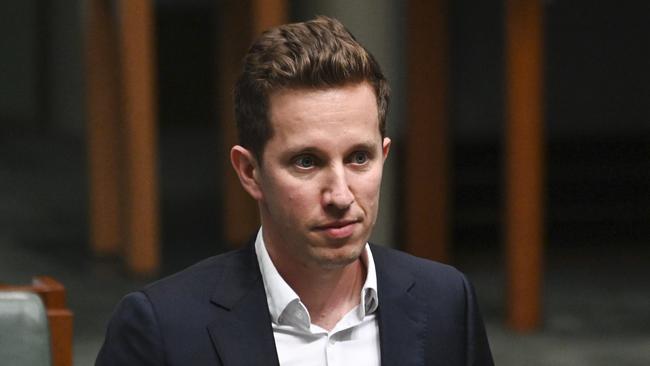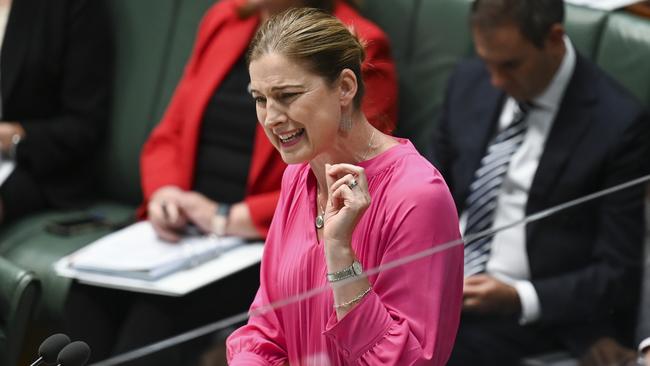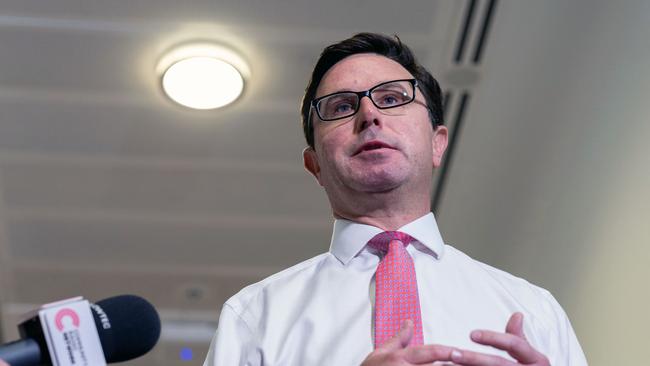Greens may decide $10b housing policy, but say regions need better deal
Regional Australian families are being evicted following massive rental hikes while others are sleeping in their cars, according to a Greens spokesman.
Regional Australia is being “hit the hardest by the rental affordability crisis” with families being evicted following massive rental hikes, others sleeping in cars and workers who cannot afford to live near work, according to Greens housing spokesman Max Chandler-Maher.
The party currently holds the fate of the Albanese government’s $10 billion centrepiece housing policy in its hands.
Mr Chandler-Maher said the party could not support a proposed Housing Australia Future Fund it believed would fail to reverse a housing crisis “destroying regional communities”.
Agriculture has been heavily affected by the housing and rental crisis, as the sector battles chronic worker shortages with many farmers being left shorthanded during the recent harvest.

National Farmers’ Federation workplace relations and legal affairs general manager Ben Rogers said the “enormous untapped potential” of Australian agriculture demanded policy settings that attracted employees and resolved the availability of housing and social and support services already stretched beyond capacity.
“These issues are not insurmountable, but a policy which does not include solutions to these issues will do more harm than good to workers and their families and the local communities,” he wrote in a submission to a joint standing committee on migration.
The federal government has so far failed to secure the crossbench and Greens backing in the Senate it needs to secure passage of its Housing Affordability Future Fund after it passed the lower house in February. The Coalition is opposing the bill.
Labor’s target is to fund 30,000 new social and affordable rental properties over the HAFF’s first five years, including 4000 for victims of domestic violence and older women at risk of homelessness.
However, there are no specifics around regional housing allocations and its success leans heavily on projected investment returns the fund generates to build the new properties.
Kate Colvin, national spokesperson for the Everybody’s Home campaign, said the “chronic” lack of affordable housing in regional Australia was causing a lost economic output due to job vacancies of well over $200 million a year in some regions.
“The inability to find a rental and eye-watering rent increases for the few places available is deterring people from taking up jobs in regional communities,” she said.
“Employers tell us constantly that prospective employees tell them they can’t move to the community if they can’t find a place to live. Our completely lopsided housing system is choking off the economic potential of regional Australia.”
Victoria’s regional population is predicted to increase by more than 21 per cent by 2036.
Mr Chandler-Mather said the government needed to develop a better plan to “unlock regional jobs and build thriving economies”.
Federal housing Minister Julie Collins said the HAFF would see new homes built “right across the country – including regional and rural Australia.”
“We know Australians living in regional areas have faced some of the largest drops in housing affordability,” she said.

Since May last year, the RBA has aggressively raised interest rates nine times in a bid to tame runaway inflation, which reached 7.8 per cent in December.
Nationals leader David Littleproud believes the HAFF actually “risked” the states pulling back further on their own investment responsibilities.
He said the state and federal governments should rather partner more closely with councils to develop regional-specific programs and directly fund local governments to roll them out.
“This is where a bespoke model will work, where you do not have a cookie-cutter approach, because we are focused on capital city problems where there is commercial tension,” he said.
“In rural and remote Australia there is no market tension at all, so it has to be a different model. State governments of all persuasion have really dropped the ball on this and it is an abject failure to be in this situation.”
The Senate will debate the HAFF next week.
More Coverage





